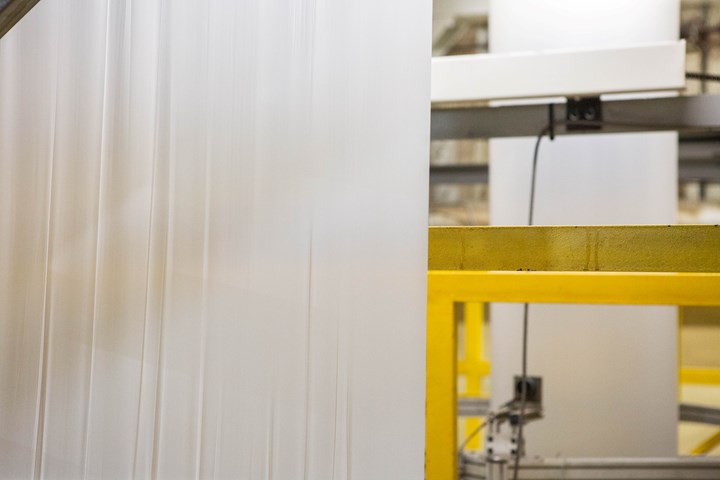Revolution Gets First-of-its-Kind LNO for Food-Contact PCR-LLDPE
The company’s PCR can be used at content levels up to 100% in the manufacture of food-contact articles for all food types under nearly all conditions of use.
has marked what is said to be a first-of-its-kind milestone for the recycling and consumer packaging industries. This, by recently having received a Letter of No Objection (LNO) from the U.S. Food and Drug Administration (FDA) for the company’s proprietary recycling method to produce post-consumer recycled, linear low-density polyethylene (PCR-LLDPE) for food contact applications.

PCR-LLDPE produced by Revolution’s process can be used at content levels up to 100% in the manufacture of food contact articles for all food types under nearly all ‘Conditions of Use’ as defined by the FDA. Revolution’s FDA LNO is said to represent a significant step forward in addressing the increasing global need for flexible film recycling and sustainable consumer packaging. In recent years, consumer awareness and demand for recycled content has risen dramatically as organizations such as the U.S. Plastics Pact have set aggressive targets to achieve as much as 30% recycled content in plastic packaging by 2025. Increased demand for recycled content has driven the need for recyclers to meet the quality standards and food-contact requirements set by consumer packaging applications.
Revolution’s advancements in flexible film recycling holds promise to bridge this gap by providing the widest possible applications to date for the use of LLDPE PCR in flexible films. Developing a method to meet food contact quality PCR represents the culmination of a long-term development project undertaken by the Revolution team. Revolution leveraged its more than 25 years of flexible film recycling experience to develop new proprietary processes, testing methods and quality control measures to meet the stringent requirements specified by the FDA.
Said Scott Coleman, Revolution’s senior v.p. of strategy and growth, “This was a multi-year, targeted project to improve our process, and it has really paid off in showing what can be done with recycled content. We feel this is just the beginning of tremendous growth and application development for PCR in flexible films.” Revolution expects additional approvals and advancements based on this first benchmark, paving the way for further innovation in PCR production. The company is currently expanding capacity and ramping up processes to meet market demand.
Related Content
-
Prices Up for PE, PP, PS, Flat for PVC, PET
Trajectory is generally flat-to-down for all commodity resins.
-
April 2025: Mixed Bag for Prices of Volume Resins
The end of the first quarter marked higher prices for polyolefins and relatively flat pricing for nearly all other resins.
-
The Fundamentals of Polyethylene – Part 2: Density and Molecular Weight
PE properties can be adjusted either by changing the molecular weight or by altering the density. While this increases the possible combinations of properties, it also requires that the specification for the material be precise.




